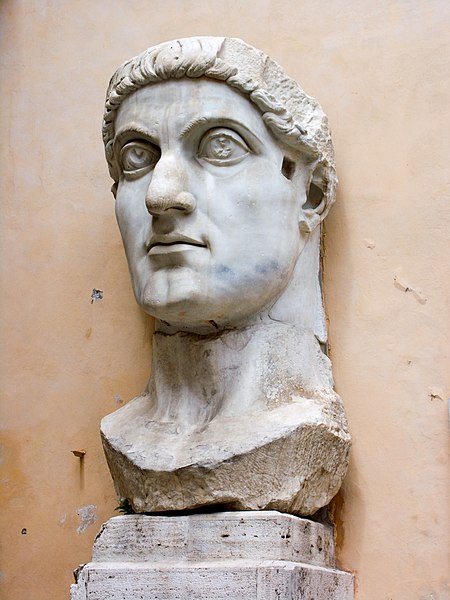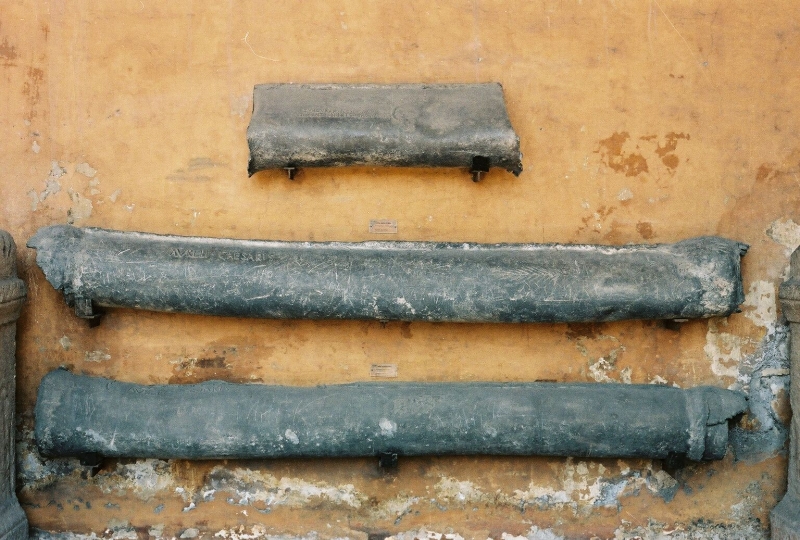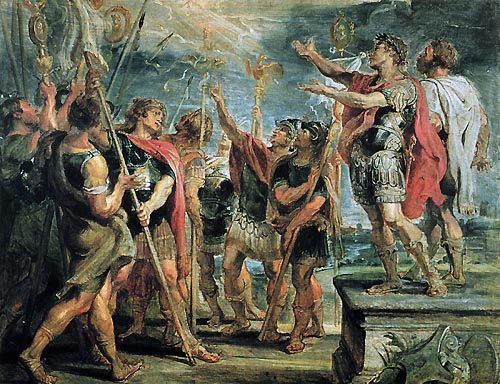St. Augustine was born in Tagaste, Numidia in North Africa. His mother was a Christian, but his father remained a pagan until late in life. After a rather unremarkable childhood, Augustine drifted through several philosophical systems before converting to Christianity at the age of thirty-one. At the age of nineteen, Augustine read Cicero's Hortensius, an experience that led him into the fascination with philosophical questions and methods that would remain with him throughout his life. After a few years as a Manichean, he became attracted to the more skeptical positions of the Academic philosophers. Although tempted in the direction of Christianity upon his arrival at Milan in 383, he turned first to neoplatonism. During this time, Augustine became a father to the child of a mistress.
Augustine had studied at
Carthage, he used this fact to gain employment in teaching in Carthage and then in Rome and Milan. Here he met Ambrose who is credited for Augustine's conversion and who baptized Augustine in 387. Returning to his homeland soon after his conversion, he was ordained a presbyter in 391, taking the position as bishop of Hippo in 396, a position which he held until his death.

St. Augustine affirms that the world was created by God from nothing, through a free act of His will.
Augustine also affirms that the absolute unity and the spirituality of the human soul. In regard to the nature of the soul he affirms that the soul is simple and immortal. The soul has three functions: being, understanding, and loving. Corresponding to three faculties: intellectual memory, intelligence, and will. The primary among these three faculties is the will. The will of man is free. Three kinds of evil can be distinguished: metaphysical, physical, and moral.. Metaphysical evil is the lack of a perfection.Under this aspect, all creatures are evil because they fall short of full perfection, which is God alone. Physical evil consists in the privation of a perfection due to nature. The only true evil is moral evil; sin. Sin is an action contrary to the will of God. The cause of moral evil is not God, who is good, nor is it matter for matter is a creature of God and therefore is good. Neither is the will as a faculty of the soul evil, for it too has been created by God. The cause of moral evil the free will, by which man is able to turn from the right order, to oppose himself to the will of God. Sin, from the very fact it is decadence of being, carries in itself its own punishment. By sinning man injures himself in his being, for he falls from what he was created to be. As a result of this fall there exist the sufferings which he must bear.
"Traditionally Augustine is regarded as the father of what has developed as the Western theory of just war."
(Internet Book)"Fifth-century philosopher St. Augustine of Hippo sought to provide an answer to the question. His approach formed the foundation of the ‘just war’ tradition, which has had enormous influence upon moral-philosophical thought on military issues in the West ever since. This major new study identifies Augustine’s fundamental premises, reconstructs his just-war theory, and critically evaluates the reconstructed theory in light of his historical context and neo-Platonic and Christian philosophical considerations."
(Internet Book)The main point of the
Just War Theory is that while war may be awful, it is nevertheless sometimes a necessary aspect of politics.

Augustine believed that, given Jesus Christ's call for his followers to be peacemakers, as stated in Matthew 5:9, using no violence, war is a lamentable sin taking place in the earthly world, and that it can never establish eternal peace. However, he also believed from a practical point of view that if it is necessary to defend the innocent against evil, violence may be used. This constituted his theory of
"just war." He concluded that there must be at least two requirements for just war: proper cause and proper authority. The first requirement means that wars be waged only for the purpose of establishing peace. The second requirement is that wars be waged by governing authorities, because they are established by God in the natural world for a providential reason.




 Paul Preaching in Rome
Paul Preaching in Rome General Constantine
General Constantine







